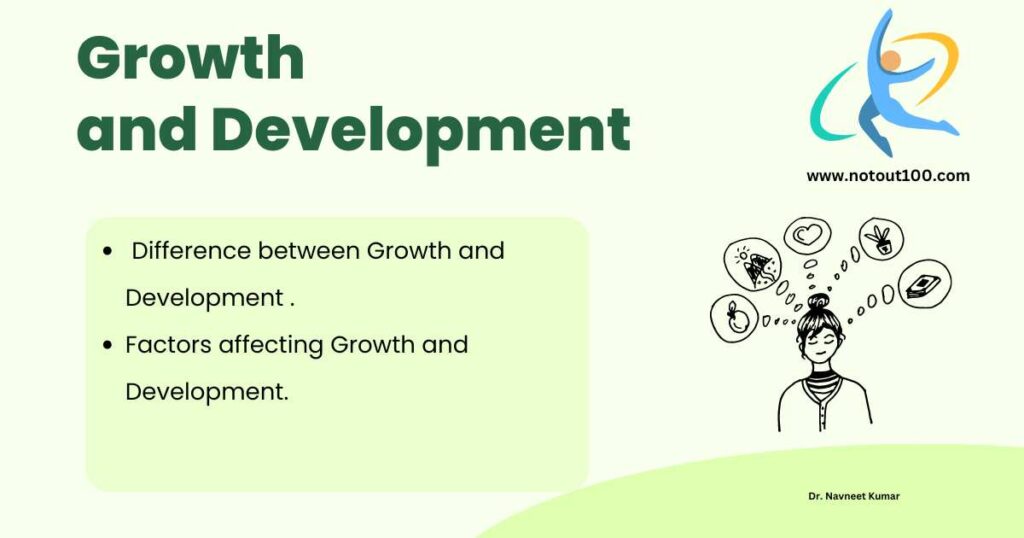
What is Growth and Development
Growth and development are processes of change. Growth implies an increase in size, weight, volume, and value. To grow, certain stages such as prenatal, neonatal, infancy, childhood, and adolescence must be passed through. These stages do not recur. Certain aspects of human development are limited, such as physical, mental, emotional, social, cultural, and personal.
Differences between Growth and Development:
1. Growth is quantitative,
whereas development is both quantitative and qualitative.
2. Growth involves changes in various parts of the body along with structural changes,
whereas development also involves social and emotional changes, such as movement, height, and weight.
3. The main factor for growth is physical,
while for development it is psychological functioning and its distribution.
4. Growth is a fixed timeframe,
whereas development occurs from birth to death.
5. Growth can be measured;
development can be gauged through behavior.
6. Growth pertains to an individual’s personality,
whereas development indicates complete development.
7. Growth factors are limited,
while developmental factors are vast.
Factors Affecting Growth and Development:
Many factors influence growth and development, such as
heredity,
environment,
nutrition,
emotional stress,
socio-economic status.
Any individual’s development is contingent upon these factors. Even if one of these factors is deficient, it can impact both growth and development.
Heredity:
This factor has the greatest effect on an individual’s growth and development because it determines physical capabilities such as height, weight, and size. Children inherit traits from their parents, which form the basis for their height and size.
Environment:
It is believed that seasonal variation greatly affects an individual’s height and growth rate. During this period, hormonal changes are frequent. In our society, seasonal fluctuations can also make our habits irregular. Weather significantly impacts the growth and development of every individual. Nutrition:
Nutrition provides necessary life sustenance for humans. However, it is important to understand what type of nutrition should be taken, as it affects physical growth and development. Many diseases in the body occur due to malnutrition. Children should receive the correct amount of minerals, vitamins, water, carbohydrates, and proteins in their diet, as a balanced diet influences the physical and mental development of children.
Culture:
Every society has its own culture; hence, an individual’s development is influenced by it. Culture plays a significant role in changing an individual’s behavior. Culture also determines people’s nutritional habits.
Economic Perspective:
In society, different classes such as the wealthy, middle class, and lower class exist. The behavior of these classes also varies. From an economic perspective, such behavior affects the mental development of all individuals.